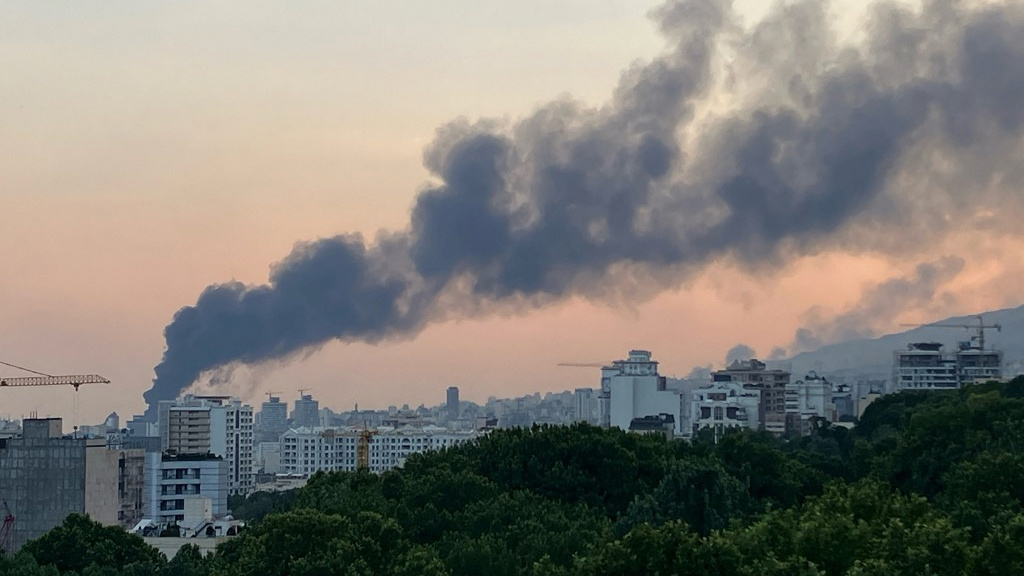Israel’s decision to strike Iran marks a profound escalation in regional tensions, launching a new and volatile phase of the geopolitics of the Middle East.
The Israeli military operation, codenamed Rising Lion, signals a shift to a direct confrontation between Israel and Iran. The Iranian retaliation, involving a barrage of drones and ballistic missiles, was not just expected, but politically necessary for Tehran to preserve its deterrence and national pride.
The situation now threatens to entrench both countries in an unpredictable cycle of violent escalation.
Although Israel has justified its strikes as a preventive measure aimed at dismantling Iran’s nuclear capabilities, many analysts question its ability to achieve this without US support. A deeply buried facility like Fordow cannot be hit without advanced American bunker-busting munitions.
Rather than halting Iran’s nuclear ambitions, these strikes may provoke its full withdrawal from the Non-Proliferation Treaty, pushing Tehran to pursue nuclear weapons openly in a scenario reminiscent of North Korea’s defiance.
New MEE newsletter: Jerusalem Dispatch
Sign up to get the latest insights and analysis on
Israel-Palestine, alongside Turkey Unpacked and other MEE newsletters
Iran has already enriched uranium to 60 percent purity and announced new enrichment facilities, heightening fears of an irreversible nuclear trajectory.
The Israeli attacks have also placed fragile US-Iran nuclear negotiations in jeopardy. Talks were due to resume just days after the strikes. While Washington officially denies involvement, widespread belief in American complicity could push Tehran to treat the US as a co-belligerent, complicating diplomatic efforts and risking the involvement of American forces if Iran targets US assets in the region.
New alliances
Gulf states, many of which seek economic diversification and regional stability, have expressed alarm over Israel’s actions. These governments fear being dragged into a wider war and are advocating for de-escalation and diplomacy.
But the perception of Israel as the dominant regional power is growing. This shift could lead to new, albeit fragile, alliances centred around Israel’s deterrence power – complicating Arab foreign policy strategies, as public opinion remains vehemently opposed to Israeli aggression.

By allowing Israel to bomb Iran, Trump is pushing Tehran to go nuclear
Read More »
Israel’s military strategy apparently aims to decapitate Iran’s military and nuclear leadership. While Tehran has proven resilient, ongoing economic sanctions and domestic unrest could fuel greater internal instability.
On the other hand, Israel faces its own crises: more than 600 days of war in Gaza, soaring military expenditures, deep political divisions, and a government accused of prolonging conflicts for personal political gain. The result is growing disillusionment among Israelis, including over stalled hostage negotiations and the state’s deteriorating international standing.
Rather than short-lived skirmishes, Israel’s broader strategic ambition is to reshape the Middle East, dismantle the “axis of resistance”, and entrench its hegemony. Although Hamas and Hezbollah have been weakened, they remain active. The likelihood of a broader war is high, especially if the US decided to join forces with Israel.
The economic ramifications are also severe: soaring oil prices and potential disruptions to critical shipping lanes like the Strait of Hormuz.
Israel’s strikes on Iran, and its genocide in Gaza have ignited widespread public outrage across the Arab world. Support for normalisation with Israel has sharply declined, even in countries that signed the Abraham Accords, while public trust in western powers has plummeted since October 2023.
While the protests that have erupted across Arab countries in recent months may not topple authoritarian regimes, they constrain political decision-making and force governments to recalibrate their foreign policies to appease public sentiments.
Prolonged instability
Iranians may escalate their responses to restore credibility; this could include cyberattacks, targeting western military bases, or disrupting maritime trade. Such a chain reaction could draw in major global powers, including Russia and China.
The re-militarisation of the region, collapsing trust in diplomacy, and increasing polarisation now raise the spectre of prolonged instability
Efforts to isolate or collapse Tehran may also backfire. If Iran were to fragment along ethnic lines (Kurdish, Arab, Baloch, Azerbaijani, etc), the result could resemble post-Gaddafi Libya or post-Saleh Yemen: ungoverned spaces prone to terrorist entrenchment. Such a scenario would invite transnational groups like al-Qaeda to expand.
The region is already boiling over Israel’s genocide in Gaza.
Israeli military actions have weakened already vulnerable states, eroding central authority and opening power vacuums ripe for exploitation by non-state actors.
The war on Iran might be framed as a targeted mission to neutralise nuclear threats, but its broader goal appears to be reshaping the Middle Eastern power structure in favour of Israeli dominance. This comes at the cost of rising public outrage, weakened Arab regimes, and emboldened extremist actors.
The re-militarisation of the region, collapsing trust in diplomacy, and increasing polarisation now raise the spectre of prolonged instability. This undermines development agendas, shattering alliances and risking a larger war that could quickly spiral out of control.
The views expressed in this article belong to the author and do not necessarily reflect the editorial policy of Middle East Eye.

